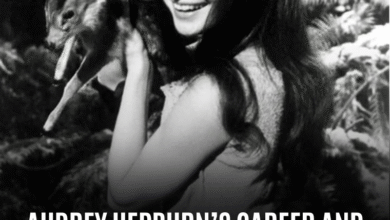‘I Don’t Advise It’: Cillian Murphy Breaks Silence on His Extreme Oppenheimer Weight Loss Plan
OPINION: This article may contain commentary which reflects the author's opinion.
In Hollywood’s long tradition of extreme physical transformations for the sake of art, Cillian Murphy’s preparation for his portrayal of J. Robert Oppenheimer may stand out as one of the most punishing. Known for his magnetic presence in Peaky Blinders and numerous Christopher Nolan films, Murphy went to extraordinary lengths to embody the gaunt, intense physicist behind the creation of the atomic bomb.
Murphy’s physical metamorphosis for Oppenheimer was no accident. The real-life figure’s famously frail silhouette was integral to the storytelling, and director Christopher Nolan — renowned for his meticulous attention to authenticity — demanded nothing less than full immersion. As a result, Murphy embarked on a drastic weight loss journey that left even his co-stars concerned. Emily Blunt, who plays Kitty Oppenheimer, described the extremity of his regimen, saying in an interview with Extra that Murphy “could only eat, like, an almond every day.” Her comments, echoed across outlets like People Magazine and Business Insider, painted a picture of a dangerously minimalistic diet that stunned even veteran Hollywood insiders.
While Murphy himself has been reticent about detailing the extent of his weight loss, he was candid enough in a conversation with IndieWire to warn others: “I don’t advise it.” His brief yet telling comment suggests a clear awareness of the dangers involved — a point emphasized by health experts cited in Business Insider, who noted that such extreme caloric restrictions could lead to serious issues including nutrient deficiencies, muscle wasting, and even gallstones.
Interestingly, Murphy pointed out that Oppenheimer’s real-life fuel was often martinis and cigarettes — an observation that may have helped him channel the character’s famously frenetic energy but was not the basis of his actual diet. Instead, the focus was on sheer caloric deprivation to mirror the physicist’s wiry frame. This approach, while visually effective, came at a steep physical and psychological cost. On set, Murphy reportedly operated on what Blunt called “crazy energy,” suggesting that the lack of nutrition heightened his performance’s intensity, if at great personal risk.
Murphy’s extreme diet is not an isolated case in the film industry. His method draws comparisons to other infamous transformations — Christian Bale’s skeletal turn in The Machinist, Heath Ledger’s commitment to the Joker’s wiry menace in The Dark Knight, and Hilary Swank’s grueling physical prep for Million Dollar Baby. As Slurrp notes, these transformations are often celebrated for their artistic commitment, but they raise recurring ethical and health concerns about the pressure actors face to physically conform to their roles.
Today, Murphy appears to have returned to a healthier lifestyle, reportedly embracing a vegan diet as he moves beyond the grueling demands of Oppenheimer (per Men’s Health UK). His experience stands as both a testament to his dedication and a cautionary tale about the blurred line between authenticity and self-harm in the pursuit of cinematic greatness. As audiences marvel at his haunting performance, Murphy’s sacrifice prompts a necessary conversation about where the limits of method acting should be drawn — and at what cost.
Would you like me to also suggest a headline variation if you want to publish this on different platforms?



